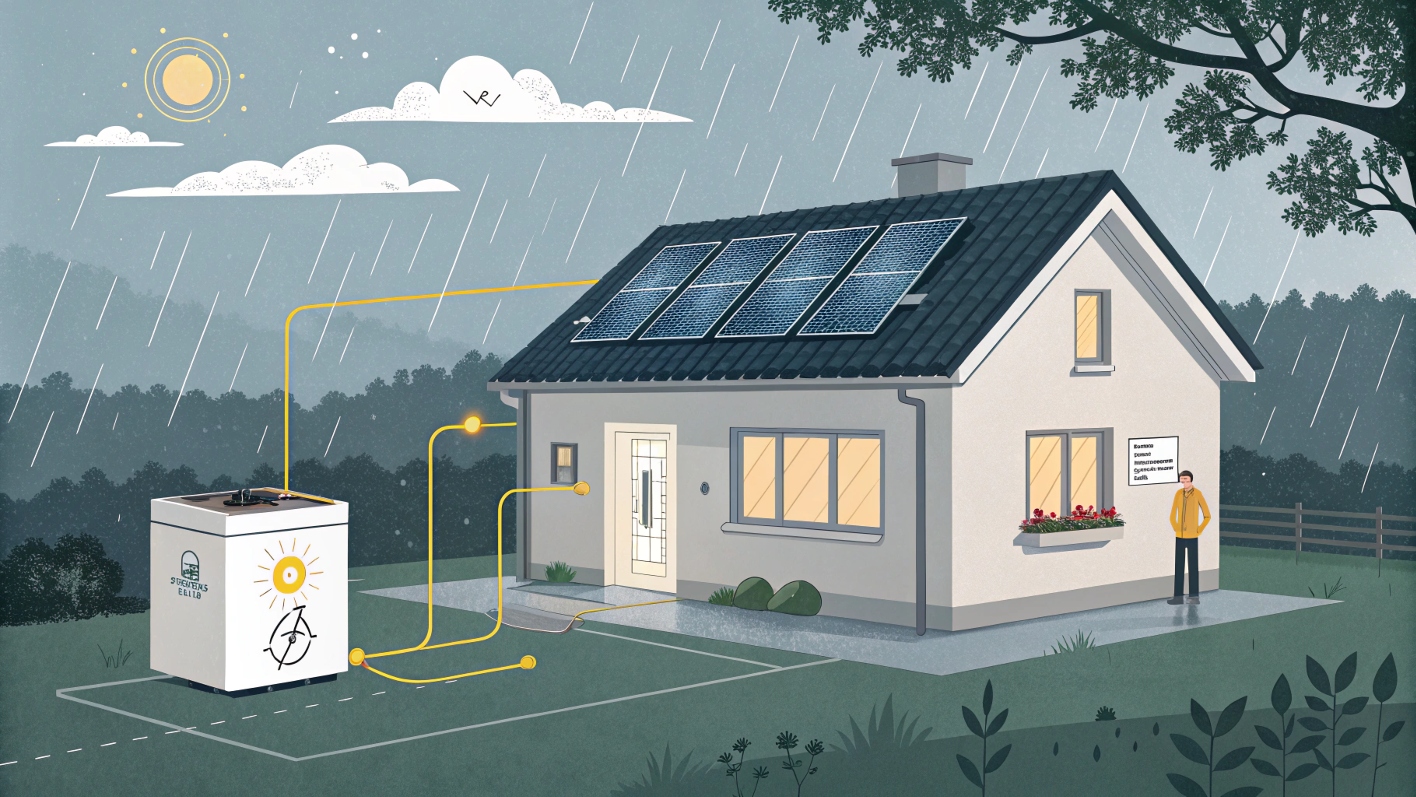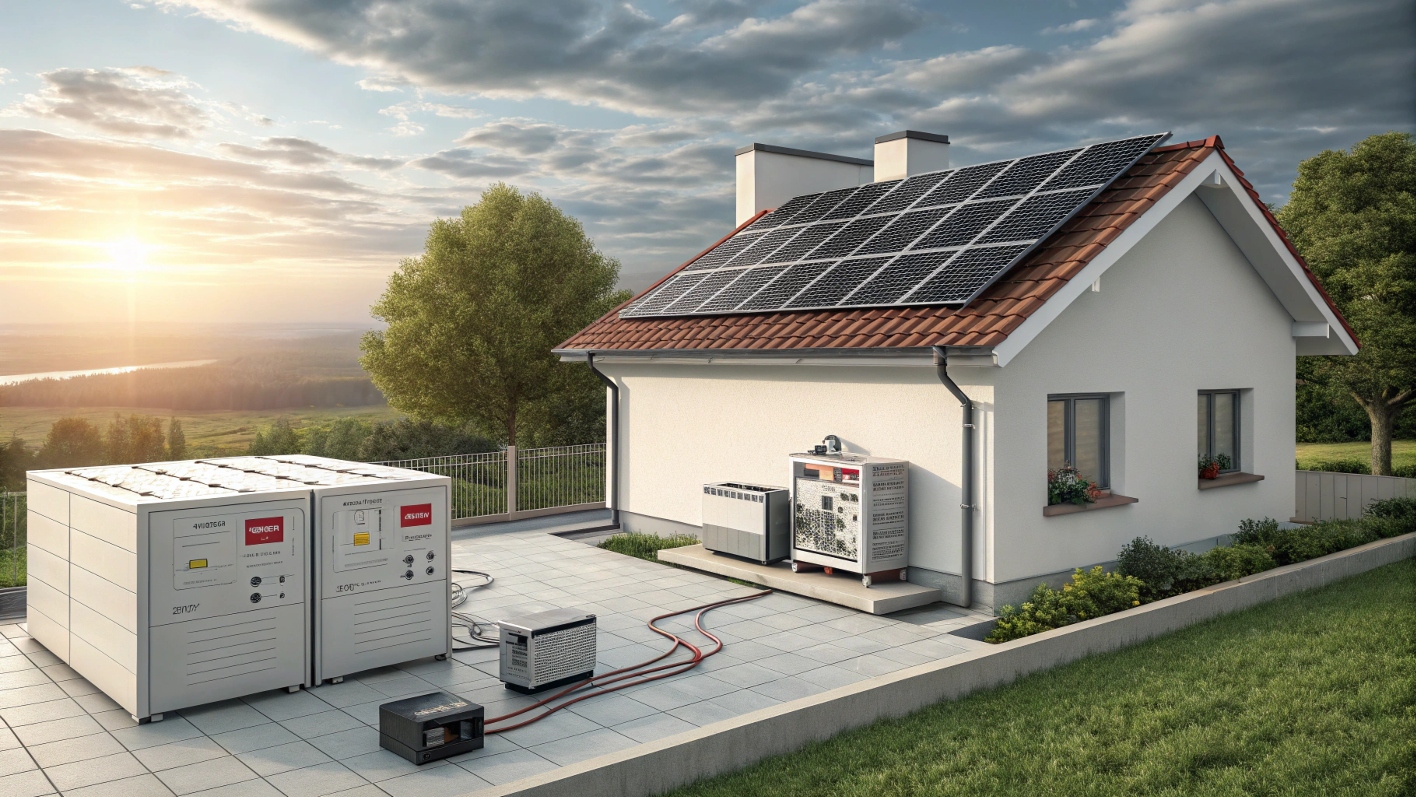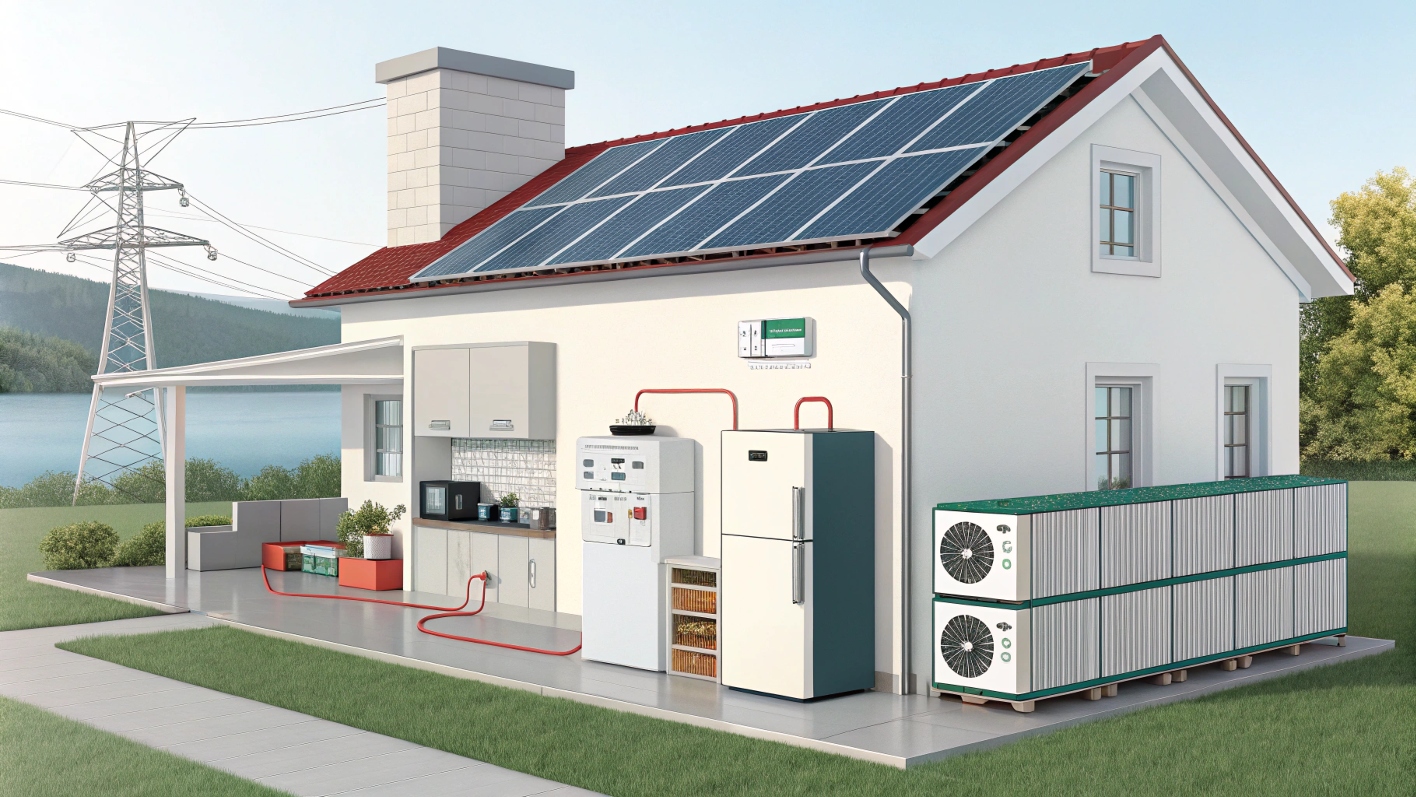إجابة سريعة
لماذا تستخدم بطارية شمسية ليثيوم أيون لتخزين الطاقة?
أ بطارية ليثيوم أيون الشمسية يستخدم لتخزين الطاقة لأنه يقدم:
- كثافة طاقة عالية بحجم صغير
- عمر طويل من 10 إلى 15 سنة وآلاف الدورات
- شحن/تفريغ سريع معدلات لالتقاط ذروة الشمس
- التفريغ العميق دون ضرر (80– 90% وزارة الدفاع)
- الحد الأدنى من الصيانة بالمقارنة مع الرصاص الحمض
- قابلية التوسع من خلال التصميم المعياري
- المراقبة الذكية وميزات السلامة المحسنة
1. كثافة طاقة عالية
لماذا يهم: غالبًا ما تكون المساحة محدودة في المنشآت السكنية أو التجارية.
- بصمة مدمجة: تخزن بطاريات الليثيوم أيون ما يصل إلى 100 واط/كجم او اكثر, مقابل 30-50 واط ساعة/كجم لحمض الرصاص.
- خفيف الوزن: أسهل في التعامل والتركيب على الجدران أو في خزائن البطاريات الضيقة.
للحصول على أنيق, حل لتوفير الفضاء, استكشف لدينا البطارية الشمسية LiFePO4 وحدات.
2. طويل العمر الافتراضي
لماذا يهم: إن تقليل عمليات الاستبدال يعني انخفاض التكاليف على المدى الطويل وتقليل النفايات.
- 10– 15 سنة خدمة مع 3000-5000 دورة كاملة
- الاحتفاظ المستمر بالقدرة-زيادة 80 % بعد آلاف الدورات
قارن ذلك ببطاريات الرصاص الحمضية, والتي تستمر عادةً لمدة 3-5 سنوات فقط في ظل استخدام مماثل.
3. كفاءة عالية ذهابا وإيابا
لماذا يهم: يؤدي تعظيم الطاقة المخزنة القابلة للاستخدام إلى تقليل الاعتماد على الشبكة.
- يصل إلى 95 % كفاءة, وهذا يعني فقدان القليل جدًا من الطاقة أثناء الشحن/التفريغ
- غالبًا ما تعمل أنظمة حمض الرصاص فقط 70-80 % كفاءة, إضاعة المزيد من الحصاد الشمسي الخاص بك
المزيد من الكفاءة يعني أن المزيد من الطاقة الشمسية المولدة لديك ينتهي بها الأمر إلى كيلووات ساعة مفيدة.
4. شحن سريع & التفريغ العميق
لماذا يهم: يلتقط القمم الشمسية المتقطعة ويوفر نسخًا احتياطية موثوقة.
- معدلات الشحن السريع- تخزين الطاقة بسرعة خلال ساعات ذروة ضوء الشمس
- القدرة على التفريغ العميق ما يصل الى 80-90 % وزارة الدفاع, مقابل فقط 50 % للحمض الرصاص, مما يتيح لك المزيد من السعة المقدرة للبطارية
تضمن هذه المرونة إمكانية سحب الطاقة واستبدالها حسب الحاجة دون الإضرار بالخلايا.
5. صيانة منخفضة
لماذا يهم: يقلل من الوقت والتكلفة التي تنفق على الصيانة.
- لا سقي أو الشيكات المنحل بالكهرباء المطلوبة
- لا رسوم المعادلة- مجرد روتين شحن/تفريغ بسيط
- الحد الأدنى من التفريغ الذاتي, لذلك تحتفظ البطاريات بالشحن لفترة أطول خلال فترات الخمول
تثبيت وننسى, يحررك من الصيانة المنتظمة التي تتطلبها بطاريات الرصاص الحمضية.
6. قابلية التوسع & الشكل
لماذا يهم: يمكنك أن تبدأ صغيرًا وتنمو وفقًا لاحتياجاتك.
- تصميم وحدات يسمح بإضافة أو إزالة وحدات البطارية بالتوازي
- خيارات الجهد (12 الخامس, 24 الخامس, 48 الخامس) تطابق أي العاكس أو الإعداد خارج الشبكة
بحاجة إلى المزيد من القدرات في العام المقبل? ما عليك سوى إضافة المزيد من وحدات بطارية الليثيوم دون استبدال البنك بالكامل.
7. المراقبة الذكية & ميزات السلامة
لماذا يهم: يضمن التشغيل الموثوق به ويحمي استثمارك.
- نظام إدارة البطارية المدمج (خدمات إدارة المباني) يوازن الخلايا ويمنع الشحن الزائد/الإفراط في التفريغ
- أجهزة استشعار درجة الحرارة و كشف الخطأ تحسين السلامة
- المراقبة عن بُعد عبر التطبيق أو بوابة الويب للتشخيص في الوقت الحقيقي
ابق على اطلاع حول صحة النظام الخاص بك وأنماط الاستخدام, وقبض على القضايا قبل أن تصبح مشاكل.
8. صديقة للبيئة & فعالة من حيث التكلفة مع مرور الوقت
لماذا يهم: أفضل لمحفظتك وللكوكب.
- تخفيض الاستبدالات الحد من النفايات الخطرة من البطاريات القديمة
- كفاءة أعلى يقلل من هدر الطاقة وفواتير الخدمات
- عائد الاستثمار على المدى الطويل: على الرغم من ارتفاع التكاليف الأولية, انخفاض الصيانة والعمر الممتد يجعل الليثيوم أيون أرخص لكل كيلووات ساعة مخزنة طوال عمرها
أنت تستثمر أكثر في البداية ولكنك توفر بشكل كبير على البدائل, فقدان الطاقة, والصيانة.
خاتمة
توفر بطاريات الليثيوم أيون مزيجًا لا يهزم من أداء, متانة, و كفاءة لتخزين الطاقة الشمسية. من بهم تصميم مضغوط و شحن سريع لهم طويل العمر الافتراضي و ميزات السلامة الذكية, إنها الخيار الأفضل لأنظمة الطاقة الشمسية الحديثة. جاهز لترقية سعة التخزين لديك? تحقق من لدينا بطاريات LIFEPO4 الشمسية وكاملة حلول تخزين الطاقة الشمسية للموثوقية, احتياطية الطاقة منخفضة الصيانة.
التعليمات
س: هل بطاريات الليثيوم أيون أفضل لتخزين الطاقة الشمسية من بطاريات الرصاص الحمضية؟?
أ: نعم. أنها توفر كثافة طاقة أعلى, حياة أطول, شحن أسرع, تفريغ أعمق, وصيانة أقل.
س: كم تدوم بطاريات الليثيوم أيون الشمسية؟?
أ: عادة 10-15 سنة أو 3000-5000 دورة, مقارنة بـ 3-5 سنوات لبطاريات الرصاص الحمضية.
س: هل يمكنني توسيع بنك بطاريات الليثيوم أيون لاحقًا?
أ: قطعاً. يتيح لك تصميمها المعياري إضافة المزيد من الوحدات بالتوازي, زيادة القدرة دون تغيير الجهد.



